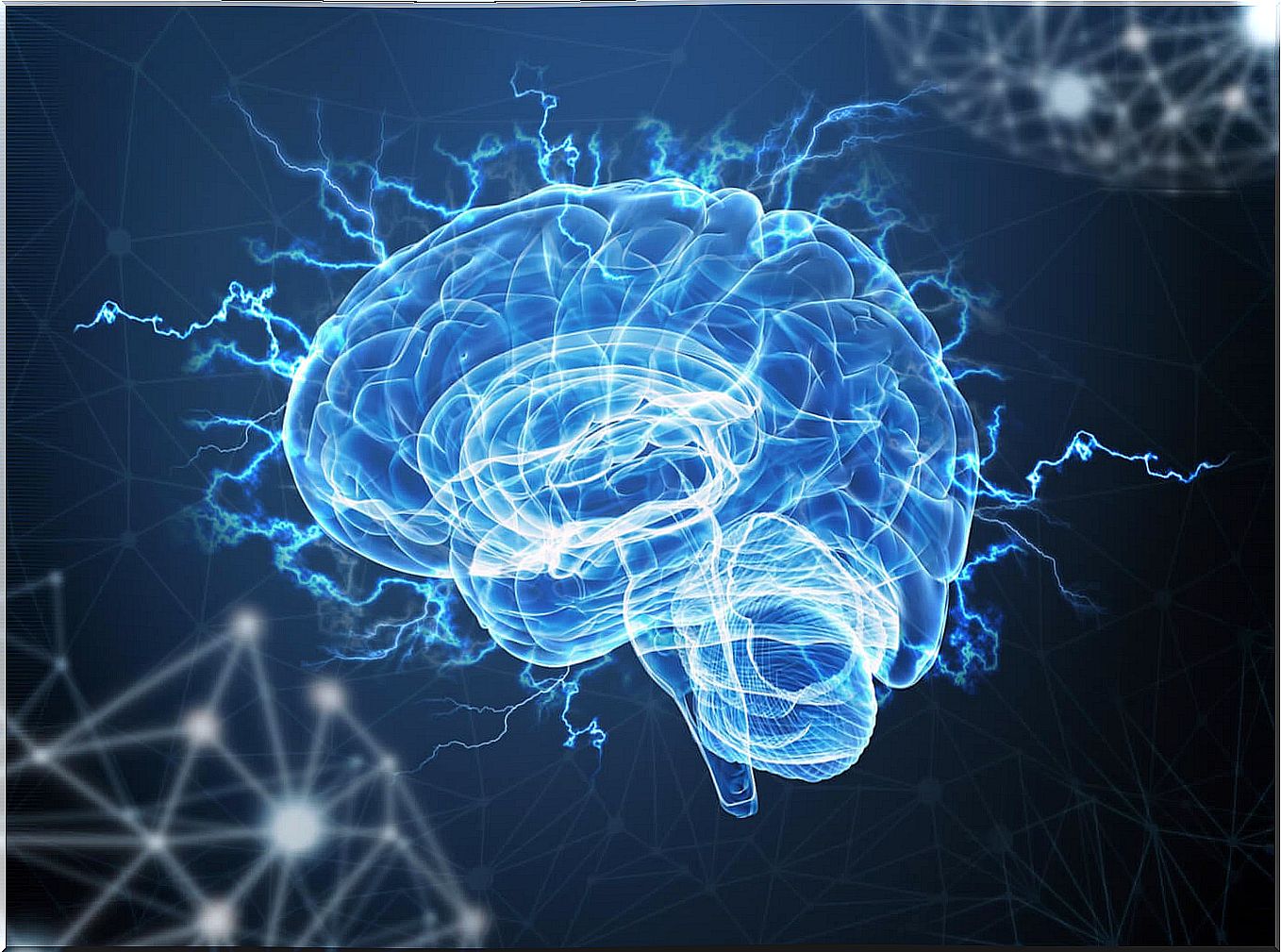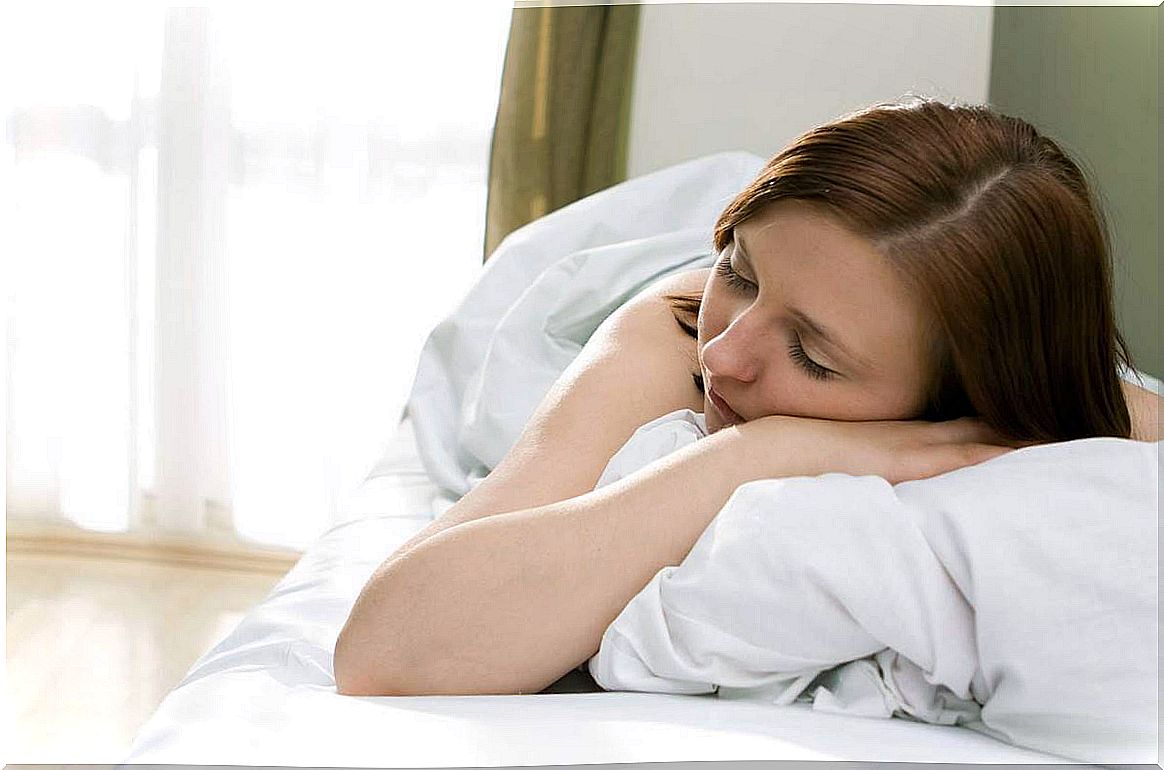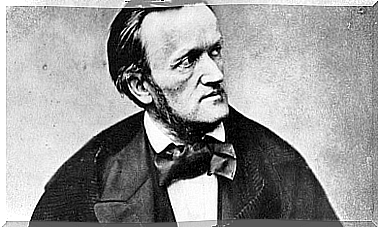Cortisol Response On Awakening, What Is It?

Are you one of those people who wake up almost always at the same time without the need for an alarm clock or are you, perhaps, one of those who experience more and more problems getting up and reacting to the new day? The cortisol response to awakening influences a good part of these processes that help us to adapt to the conscious world and morning demands.
Let’s admit it, for many there is no more critical moment. Opening our eyes, clearing up and activating ourselves to start the responsibilities of each day with courage, good humor and energy is not always easy. Coffee helps, it’s true. However, the mechanism that regulates this activation process is the hypothalamic-pituitary-adrenal axis. If this system presents any alteration, multiple physical and psychological realities can fail.
We know, for example, that if there is some dysregulation in the production of cortisol in that first hour of the day, we run the risk of suffering from depression. Also, conditions such as diabetes, obesity or respiratory problems can alter the balance and function of this critical steroid hormone.

What is the cortisol response on waking?
The cortisol response to awakening defines a mechanism by which the pituitary gland releases a series of hormones into the blood. With them, the activation of the brain and muscles grows, increasing metabolism. With what purpose? To help us meet the demands of our journey.
Now, he does it in a very particular way. This neurophysiological phenomenon is activated one hour after we wake up. That cortisol release rises up to 75% higher than its normal level. That activation lasts about 45 minutes. Simply put: if we get up at 7 in the morning, the biological activation will reach us at 8 and will last until 8:45.
This response and the times we have described define normal values. However, there are those who show a more intense activation or suffer a low or negligible release of cortisol. All this results in clear alterations in the psychophysiological balance. Let’s know more data.
Factors that promote or alter the release of cortisol
We know that it is enough to pronounce the word “cortisol” to think, almost instantly, about stress processes. However, this glucocorticoid is decisive for supporting basic tasks in metabolism. This hormone is released in the adrenal glands when the pituitary gland is activated.
So, one thing we know is that this small brain region is very sensitive to our lifestyle.
- Poor sleep habits alter the cortisol response upon waking. Going to bed late and getting up every day at an hour is an obvious problem. This explains why many shift workers tend to have more trouble waking up and reacting to the demands of the environment.
- Waking up by the effect of sunlight adjusts the release of cortisol in a favorable way for the body.
- Taking very long naps in the afternoon disrupts this mechanism.
- People with chronic pain more often have trouble waking up and reacting in the morning. This is related to the stress that this suffering situation causes.
Cortisol response to awakening and its relation to depression
The response of cortisol to the alarm clock can be, according to various studies, a trigger for depression. Thus, works such as those carried out at the University of Leiden (Holland) point us to something interesting. Dysregulation of the hypothalamic-pituitary-adrenal axis is related to a series of very specific cognitive and emotional alterations :
- There is a greater sensitivity to anxiety.
- There are cognitive alterations (problems with concentration, memory, decision-making …)
- Hopelessness and irritability rise.
- Likewise, more intense rumination states are observed.
To understand it better, we travel to those days when we wake up with zero activation. It is difficult for us to get up, there is no energy or motivation to face our responsibilities. We only experience tiredness and apathy. If this dysregulation is maintained for months, the risk of suffering from depression increases.
Post-traumatic stress disorder (PTSD) and cortisol disturbance
We know that an alteration in the cortisol response on awakening can increase the risk of suffering from depression. Now, there is another fact that we must know. People with post-traumatic stress disorder often have a dysregulation of cortisol production.
Studies such as the one carried out by Dr. Wessa M. Rohlede from the University of Heildelberg in Germany tell us about this relationship. Endocrine problems are usually a constant in patients who have been dealing with situations of high psychological suffering for months or even years. All of this further intensifies fatigue and dejection.

How is dysregulation of the hypothalamic-pituitary-adrenal axis treated?
The correct response of cortisol to awakening means in the daily well-being. It not only helps us to face our responsibilities. This mechanism is critical to maintaining the balance of circadian rhythms and regulating metabolism.
Therefore, if we ask ourselves how to balance or maintain the balance of the neurophysiological system, it is important to consider the following. Much of the harmony of these systems is part of our lifestyle. Let’s see some keys:
- Psychological disorders such as anxiety or post-traumatic stress alter the proper release of cortisol. It is important to receive adequate treatment in all cases.
- We must take care of our sleep hygiene and habits, which includes always going to sleep at the same time.
- Physical exercise and proper nutrition are decisive.
- Factors such as being overweight, as well as diabetes and cardiovascular problems alter the cortisol response upon awakening. It is advisable to take care of our health and all those factors that prevent these conditions.
To conclude, we people are more than emotions, thoughts, desires or concerns. We are also our hormones and those neurochemical processes that mediate and orchestrate every internal process. Let’s keep it in mind.









